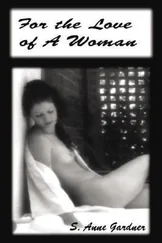Alice Munro - The Love Of A Good Woman
Здесь есть возможность читать онлайн «Alice Munro - The Love Of A Good Woman» весь текст электронной книги совершенно бесплатно (целиком полную версию без сокращений). В некоторых случаях можно слушать аудио, скачать через торрент в формате fb2 и присутствует краткое содержание. Жанр: Современная проза, на английском языке. Описание произведения, (предисловие) а так же отзывы посетителей доступны на портале библиотеки ЛибКат.
- Название:The Love Of A Good Woman
- Автор:
- Жанр:
- Год:неизвестен
- ISBN:нет данных
- Рейтинг книги:4 / 5. Голосов: 1
-
Избранное:Добавить в избранное
- Отзывы:
-
Ваша оценка:
- 80
- 1
- 2
- 3
- 4
- 5
The Love Of A Good Woman: краткое содержание, описание и аннотация
Предлагаем к чтению аннотацию, описание, краткое содержание или предисловие (зависит от того, что написал сам автор книги «The Love Of A Good Woman»). Если вы не нашли необходимую информацию о книге — напишите в комментариях, мы постараемся отыскать её.
The Love Of A Good Woman — читать онлайн бесплатно полную книгу (весь текст) целиком
Ниже представлен текст книги, разбитый по страницам. Система сохранения места последней прочитанной страницы, позволяет с удобством читать онлайн бесплатно книгу «The Love Of A Good Woman», без необходимости каждый раз заново искать на чём Вы остановились. Поставьте закладку, и сможете в любой момент перейти на страницу, на которой закончили чтение.
Интервал:
Закладка:
Yet something was wrong. There was a mistake in this scene. All the trees, all the shrubs and plants, were out in full summer leaf. The grass that showed underneath them, in spots sheltered from the snow, was fresh and green. Snow had settled overnight on the luxury of summer. A change of season unexplainable, unexpected. Also, everybody had gone away-though she couldn’t think who “everybody” was-and my mother was alone in the high spacious house amongst its rather formal trees and gardens.
She thought that whatever had happened would soon be made known to her. Nobody came, however. The telephone did not ring; the latch of the garden gate was not lifted. She could not hear any traffic, and she did not even know which way the street was- or the road, if she was out in the country. She had to get out of the house, where the air was so heavy and settled.
When she got outside she remembered. She remembered that she had left a baby out there somewhere, before the snow had fallen. Quite a while before the snow had fallen. This memory, this certainty, came over her with horror. It was as if she was awakening from a dream. Within her dream she awakened from a dream, to a knowledge of her responsibility and mistake. She had left her baby out overnight, she had forgotten about it. Left it exposed somewhere as if it was a doll she tired of. And perhaps it was not last night but a week or a month ago that she had done this. For a whole season or for many seasons she had left her baby out. She had been occupied in other ways. She might even have travelled away from here and just returned, forgetting what she was returning to.
She went around looking under hedges and broad-leaved plants. She foresaw how the baby would be shrivelled up. It would be dead, shrivelled and brown, its head like a nut, and on its tiny shut-up face there would be an expression not of distress but of bereavement, an old patient grief. There would not be any accusation of her, its mother-just the look of patience and helplessness with which it waited for its rescue or its fate.
The sorrow that came to my mother was the sorrow of the baby’s waiting and not knowing it waited for her, its only hope, when she had forgotten all about it. So small and new a baby that could not even turn away from the snow. She could hardly breathe for her sorrow. There would never be any room in her for anything else. No room for anything but the realization of what she had done.
What a reprieve, then, to find her baby lying in its crib. Lying on its stomach, its head turned to one side, its skin pale and sweet as snowdrops and the down on its head reddish like the dawn. Red hair like her own, on her perfectly safe and unmistakable baby. The joy to find herself forgiven.
The snow and the leafy gardens and the strange house had all withdrawn. The only remnant of the whiteness was the blanket in the crib. A baby blanket of light white wool, crumpled halfway down the baby’s back. In the heat, the real summer heat, the baby was wearing only a diaper and a pair of plastic pants to keep the sheet dry. The plastic pants had a pattern of butterflies.
My mother, still thinking no doubt about the snow and the cold that usually accompanies snow, pulled the blanket up to cover the baby’s bare back and shoulders, its red-downed head.
It is early morning when this happens in the real world. The world of July 1945. At a time when, on any other morning, it would be demanding its first feeding of the day, the baby sleeps on. The mother, though standing on her feet and with her eyes open, is still too far deep in sleep in her head to wonder about this. Baby and mother are worn out by a long battle, and the mother has forgotten even that at the moment. Some circuits are closed down; the most unrelenting quiet has settled on her brain and her baby’s. The mother-my mother-makes no sense of the daylight which is increasing every moment. She doesn’t understand that the sun is coming up as she stands there. No memory of the day before, or of what happened around midnight, comes up to jolt her. She pulls the blanket up over her baby’s head, over its mild, satisfied, sleeping profile. She pads back to her own room and falls down on the bed and is again, at once, unconscious.
The house in which this happens is nothing like the house in the dream. It is a one-and-a-half-story white wooden house, cramped but respectable, with a porch that comes to within a few feet of the sidewalk, and a bay window in the dining room looking out on a small hedged yard. It is on a backstreet in a small town that is indistinguishable-to an outsider-from a lot of other small towns to be found ten or fifteen miles apart in the once thickly populated farmland near Lake Huron. My father and his sisters grew up in this house, and the sisters and mother were still living here when my mother joined them-and I joined them too, being large and lively inside her-after my father was killed in the final weeks of the war in Europe.
My mother-Jill-is standing beside the dining-room table in the bright late afternoon. The house is full of people who have been invited back there after the memorial service in the church. They are drinking tea or coffee and managing to hold in their fingers the dinky sandwiches, or slices of banana bread, nut loaf, pound cake. The custard tarts or raisin tarts with their crumbly pastry are supposed to be eaten with a dessert fork off one of the small china plates that were painted with violets by Jill’s mother-in-law when she was a bride. Jill picks everything up with her fingers. Pastry crumbs have fallen, a raisin has fallen, and been smeared into the green velvet of her dress. It’s too hot a dress for the day, and it’s not a maternity dress at all but a loose sort of robe made for recitals, occasions when she plays her violin in public. The hem rides up in front, due to me. But it’s the only thing she owns that is large enough and good enough for her to wear at her husband’s memorial service.
What is this eating all about? People can’t help but notice. “Eating for two,” Ailsa says to a group of her guests, so that they won’t get the better of her by anything they say or don’t say about her sister-in-law.
Jill has been queasy all day, until suddenly in the church, when she was thinking how bad the organ was, she realized that she was, all of a sudden, as hungry as a wolf. All through “O Valiant Hearts” she was thinking of a fat hamburger dripping with meat juice and melted mayonnaise, and now she is trying to find what concoction of walnuts and raisins and brown sugar, what tooth-jabbing sweetness of coconut icing or soothing mouthful of banana bread or dollop of custard, will do as a substitute. Nothing will, of course, but she keeps on going. When her real hunger is satisfied her imaginary hunger is still working, and even more an irritability amounting almost to panic that makes her stuff into her mouth what she can hardly taste any longer. She couldn’t describe this irritability except to say it has something to do with furriness and tightness. The barberry hedge outside the window, thick and bristling in the sunlight, the feel of the velvet dress clinging to her damp armpits, the nosegays of curls-the same color as the raisins in the tarts-bunched on her sister-in-law Ailsa’s head, even the painted violets that look like scabs you could pick off the plate, all these things seem particularly horrid and oppressive to her though she knows they are quite ordinary. They seem to carry some message about her new and unexpected life.
Why unexpected? She has known for some time about me and she also knew that George Kirkham might be killed. He was in the air force, after all. (And around her in the Kirkhams’ house this afternoon people are saying-though not to her, his widow, or to his sisters-that he was just the sort you always knew would be killed. They mean because he was good-looking and high-spirited and the pride of his family, the one on whom all the hopes had been pinned.) She knew this, but she went ahead with her ordinary life, lugging her violin onto the streetcar on dark winter mornings, riding to the Conservatory where she practiced hour after hour within sound of others but alone in a dingy room with the radiator racket for company, the skin of her hands blotchy at first with the cold, then parched in the dry indoor heat. She went on living in a rented room with an ill-fitting window that let in flies in summer and a windowsill sprinkle of snow in winter, and dreaming- when she wasn’t sick-of sausages and meat pies and dark chunks of chocolate. At the Conservatory people treated her pregnancy tactfully, as if it was a tumor. It didn’t show for a long time anyway, as first pregnancies generally don’t on a big girl with a broad pelvis. Even with me turning somersaults she played in public. Majestically thickened, with her long red hair lying in a bush around her shoulders, her face broad and glowing, her expression full of somber concentration, she played a solo in her most important recital so far. The Mendelssohn Violin Concerto.
Читать дальшеИнтервал:
Закладка:
Похожие книги на «The Love Of A Good Woman»
Представляем Вашему вниманию похожие книги на «The Love Of A Good Woman» списком для выбора. Мы отобрали схожую по названию и смыслу литературу в надежде предоставить читателям больше вариантов отыскать новые, интересные, ещё непрочитанные произведения.
Обсуждение, отзывы о книге «The Love Of A Good Woman» и просто собственные мнения читателей. Оставьте ваши комментарии, напишите, что Вы думаете о произведении, его смысле или главных героях. Укажите что конкретно понравилось, а что нет, и почему Вы так считаете.












